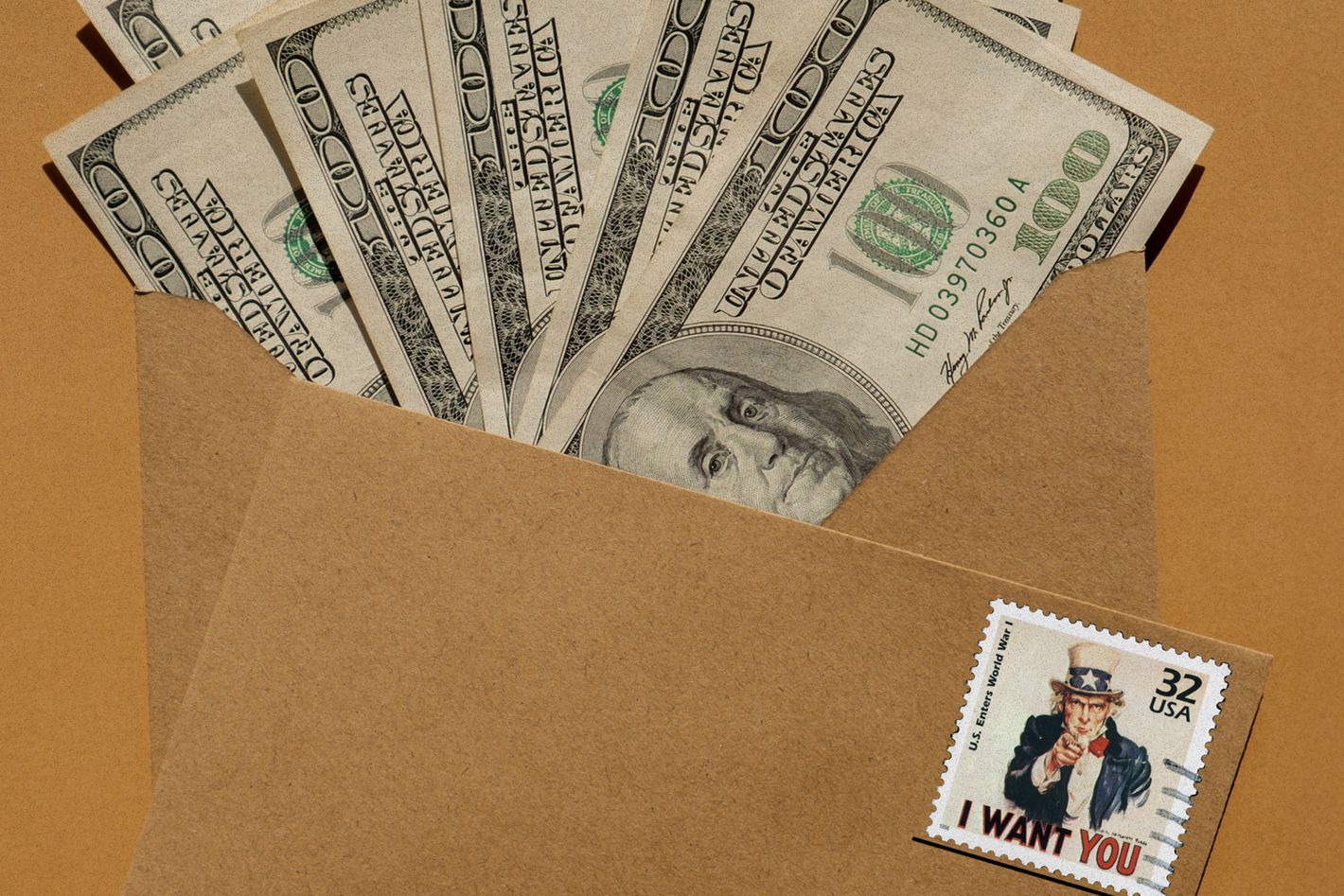
Photo-Illustration: Intelligencer; Photos: Getty Images
You can’t say that Team Trump is in denial about the extent and the implications of the electoral rebuke its party received on November 4. All of a sudden, from the president on down, Republicans can’t stop talking about affordability. Donald Trump himself alternates between claiming he’s already pushed the cost of living way down and publicly mulling ways to convince Americans to feel better about their ability to make ends meet. Obviously Republicans need to improve the president’s sinking job-approval numbers in anticipation of high-stakes midterm elections. But more immediately, the GOP must decide how to deal with the health-insurance “cliff” it created by failing to extend Obamacare premium subsidies in the One Big Beautiful Bill Act and then refusing Democratic demands to fix the problem in legislation reopening the government.
Republicans clearly can’t bring themselves to just extend the subsidies, even with the concessions on their cost and eligibility that Democrats would almost certainly accept. The Senate vote they promised on the issue by December will likely fall short of any actual results, and House Republicans are signaling unmistakably that they have no stomach for anything that looks like a blessing of the hated legacy health-care program of the 44th president (which they are now calling the Unaffordable Care Act). Recognizing that Democrats won’t agree to any “Obamacare alternative,” the White House is making it known they are warming to the idea of a second budget reconciliation bill (the One Big Beautiful Bill Act was the first) that would include health care and other goodies as part of a midterm “affordability” agenda, as Politico reports:
“We’re going to have the health care conversation. We’re going to put some legislation forward,” White House deputy chief of staff James Blair said Tuesday at a Bloomberg Government policy breakfast.
He expressed interest in a bipartisan health plan but said that “if that path is foreclosed, there is the partisan path of reconciliation as well.”
Such a move would allow Republicans to advance a health plan with a simple majority, a path they unsuccessfully attempted in Trump’s first term to repeal Obamacare but successfully used earlier this year on the megabill …
If a reconciliation bill moves soon, Blair indicated that the administration would also want to include “probably the Trump tariff dividends and … interest in locking in tariffs.”
That last sentence is important. The conventional wisdom is that you don’t move major controversial legislation in an election year. In addition, most Republicans remember that the 2017 reconciliation bill aimed at repealing and replacing Obamacare failed, while a later tax-cut bill succeeded. So if they’re going back to the well on “Trumpcare,” they’ll need some sweeteners, and the so-called tariff dividends, which are really just stimulus checks under another name, would fill the bill.
The other strong possibility is that the administration and its allies will structure “Trumpcare 2.0” to look a lot like free money as well. The president himself has been hitting this angle at Truth Social:
THE ONLY HEALTHCARE I WILL SUPPORT OR APPROVE IS SENDING THE MONEY DIRECTLY BACK TO THE PEOPLE, WITH NOTHING GOING TO THE BIG, FAT, RICH INSURANCE COMPANIES, WHO HAVE MADE $TRILLIONS, AND RIPPED OFF AMERICA LONG ENOUGH. THE PEOPLE WILL BE ALLOWED TO NEGOTIATE AND BUY THEIR OWN, MUCH BETTER, INSURANCE. POWER TO THE PEOPLE! Congress, do not waste your time and energy on anything else. This is the only way to have great Healthcare in America!!! GET IT DONE, NOW. President DJT
In reality, what he’s almost certainly talking about is the ancient Republican scheme of returning to the days before comprehensive health insurance was a thing and, instead of subsidizing insurance premiums, giving individuals some money to combine with their own savings to pay for all non-catastrophic health costs out of pocket. If you’re young and healthy, it could be a hell of a deal. If you’re older, sicker, or poorer, maybe not so much, particularly if the “new deal” on health care is paid for by cuts in safety-net programs like Medicaid (which was the case in the 2017 Trumpcare legislation).
Although there are many devils in the details, what may make this approach attractive is the more money for you angle Trump is already promoting. If packaged in a bill that also provides “tariff dividends,” and perhaps more middle-class tax breaks like the ones used to dress up OBBBA, you could have purely partisan election-year legislation that addresses affordability concerns by literally giving cash to voters. Will that do anything to reduce inflation? No, and in fact, it could have the opposite effect. But it doesn’t even have to be enacted to serve as a vehicle for GOP midterm messaging, and even if it is, the economic and fiscal fallout would be mañana.
It’s always possible Republicans will rethink this approach and compromise with Democrats to deal with the immediate Obamacare premium spike in a direct way and put off their dreams of undoing the Affordable Care Act until later. If they were really clever, they’d design an Obamacare subsidy extension that would expire if and when Trumpcare is a reality. But it’s unlikely they’ll be able to bring themselves to even a temporary compromise when the chimera of buying off the electorate while bypassing Obamacare seems possible.
More on Politics
Larry Summers’s Epstein Fallout Is Getting WorseMarjorie Taylor Greene Is the Ultimate Test of Trump’s StrengthThe Day Republicans Beat Trump
From Intelligencer - Daily News, Politics, Business, and Tech via this RSS feed

